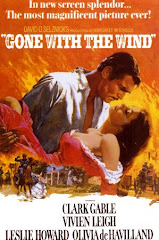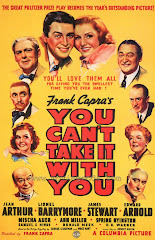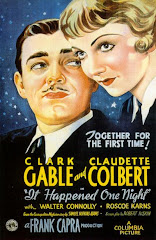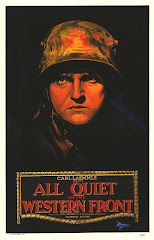Director: Billy Wilder
Cast: Ray Milland, Jane Wyman, Howard Da Silva, Frank Faylen
Genre: Drama
Other Nominees: Anchors Aweigh, The Bells of St. Mary's, Mildred Pierce, Spellbound
Genre: Drama
Other Nominees: Anchors Aweigh, The Bells of St. Mary's, Mildred Pierce, Spellbound
In the previous year director Billy Wilder directed the classic Double Indemnity, a film that was nominated for seven Oscar categories but failed to win a single one. It has been suggested that the success of The Lost Weekend owes a little something to its director’s snubbing by the Academy a year earlier. However, after viewing it and based on the heavy impact it had on me, I strongly feel that The Lost Weekend is a movie that, even today, stands on its own merits and deserved all the accolades it received.
Alcoholism is the subject matter dealt with in The Lost Weekend, a subject matter that is as important and prevalent today as it was in the 1940’s. The victim in this film is Don Bingham who is brilliantly portrayed by Ray Milland. Don refers to himself as being two people, Don the writer and Don the drunk. In one scene he explains to his girlfriend how these two Dons interact, and of how the writer’s lack of self esteem leaves him vulnerable to the drunk. Whenever he attempts to write, a panic seeps in and the drunk whispers in his ear, telling him that one drink will help. But as Nat, the local bartender explains “One’s too many and a hundred’s not enough!” In this way Don has never finished anything he has started writing and his self loathing keeps him stuck in a dangerous routine. “Don’t wipe it away, Nat. Let me have my vicious little cycle” he tells Nat who attempts to wipe away the condensation mark left behind by his last drink.
But as with all alcoholics no matter how disturbing their suffering is, it is the people who love them who suffer the most. In this movie we see two people suffer through Dons disease. Don has been living with his brother Wick free of charge for years and there is his girlfriend Helen St. James, who tells him “I know you’re trying Don. We’re both trying. You’re trying not to drink and I’m trying not to love you.” Both are just as much a victim as Don is. But while Helen, played by Jane Wyman, appears to be endlessly compassionate and forgiving, Wick Bingham has had enough of his brother and is seemingly beyond the point of being compassionate. When faced with the possibility that Don may harm himself over the upcoming weekend he lashes out and says:
If it happens, it happens and I hope it does. I've had six years of this. I've had my bellyful ... How often have you cried? How often have I beaten him up? Scrape him out of a gutter and pump some kind of self-respect into him and back he falls, back in every time.
The score to this film sounds as if it’s straight out of a classic sci-fi film. It is unrelenting and while it may turn some viewers off I thought it did a great job at helping to depict alcohol as a very real onscreen monster. In sci-fi/horror films the appearance of a villain is marked by a dramatic change in music, so too here is a glass or bottle of rye whiskey identified. In The Lost Weekend you are acutely aware when the villain appears to torment and destroy Don, as acutely as if an inhuman creature had just shambled onscreen and started towards him. The music confirms for us that for Don Bingham alcohol is a brutal enemy, a nemesis capable of destroying him completely.
As the weekend in question progresses and Don’s condition deteriorates some truly horrific scenes occur. After awaking to find him in an alcoholic’s ward of a hospital Don is warned of the effects of delirium tremens, or the DTs, a condition which the nurse predicts is imminent for Don given his blood alcohol levels. Don proceeds to escape the ward and return home where horrific hallucinations begin and culminate in the gruesome image of a bat biting the head off a mouse. This scene sees Don at his lowest point in the weekend, when his very sanity is threatened by his drinking.
My only argument against the greatness of this film comes with the ending. Until the final scene this film had been utterly uncompromising and as such had a profound effect on me. The notion of Don committing suicide had been foreshadowed throughout the film and, as disturbing as it is for me to say this, perhaps this film would have better sent the message it intended to send had it had a more negative ending. I will leave it for you to judge the final scene but for me, after being beaten mercilessly until then, I felt like the film pulled a punch.
Up Next: The Best Years of our Lives.



















































I love it when I randomly land on a blog and find that the blogger is talking about Wilder. What could be better than that?
ReplyDeleteThere is always a girl like that in the life of a pretty pointless aimless alcoholic buoyed by a woman or a family member, in this case, a brother who pays the bills and try to sober him periodically dry.
ReplyDelete